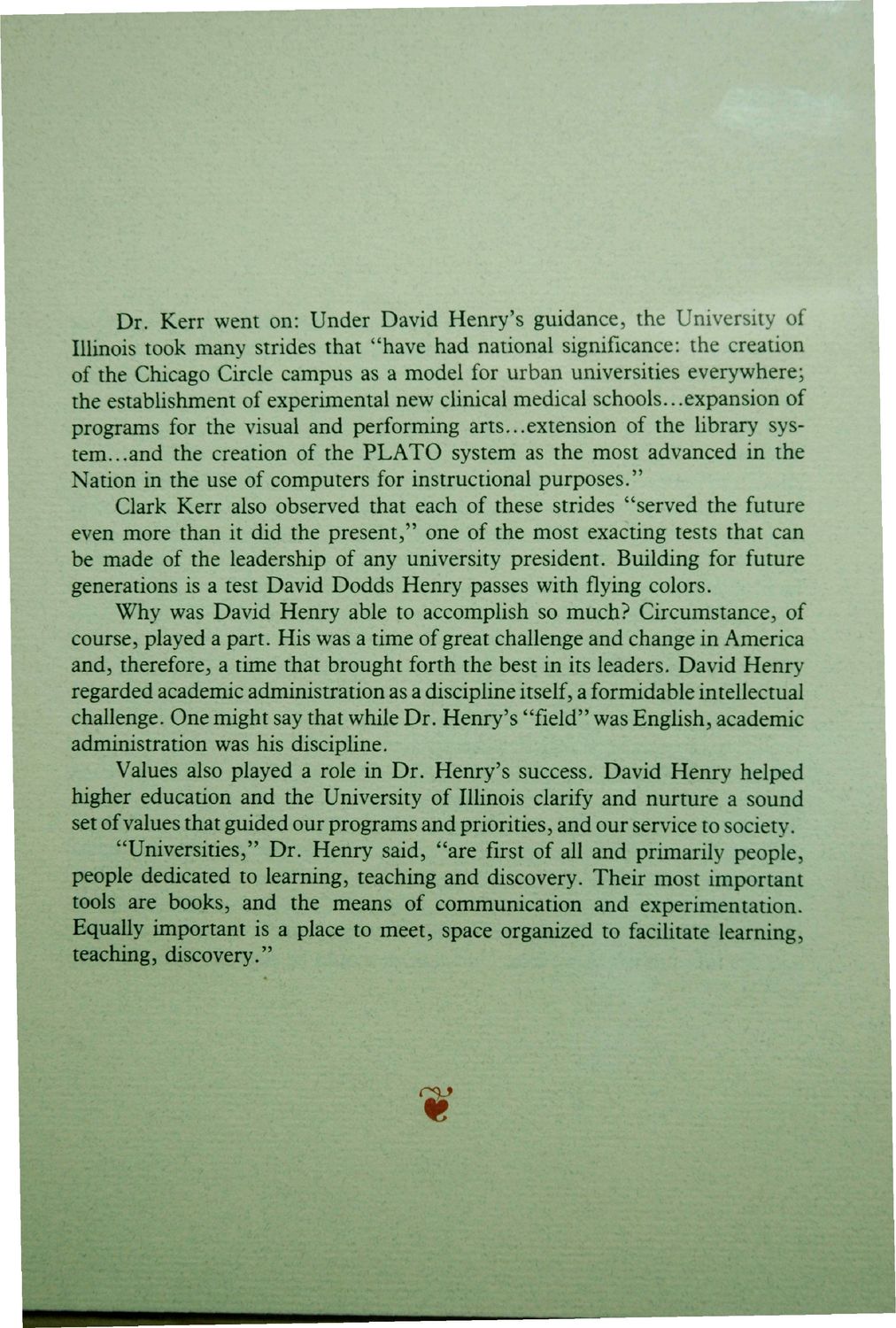| |
| |
Caption: Dedication - Henry Admin Renaming
This is a reduced-resolution page image for fast online browsing.

EXTRACTED TEXT FROM PAGE:
Dr. Kerr went on: Under David Henry's guidance, the University of Illinois took many strides that "have had national significance: the creation of the Chicago Circle campus as a model for urban universities everywhere; the establishment of experimental new clinical medical schools...expansion of programs for the visual and performing arts...extension of the library system...and the creation of the PLATO system as the most advanced in the Nation in the use of computers for instructional purposes." Clark Kerr also observed that each of these strides "served the future even more than it did the present/' one of the most exacting tests that can be made of the leadership of any university president. Building for future generations is a test David Dodds Henry passes with flying colors. Why was David Henry able to accomplish so much? Circumstance, of course, played a part. His was a time of great challenge and change in America and, therefore, a time that brought forth the best in its leaders. David Henry regarded academic administration as a discipline itself, a formidable intellectual challenge. One might say that while Dr. Henry's "field" was English, academic administration was his discipline. Values also played a role in Dr. Henry's success. David Henry helped higher education and the University of Illinois clarify and nurture a sound set of values that guided our programs and priorities, and our service to society. "Universities," Dr. Henry said, "are first of all and primarily people, people dedicated to learning, teaching and discovery. Their most important tools are books, and the means of communication and experimentation. Equally important is a place to meet, space organized to facilitate learning, teaching, discovery."
| |